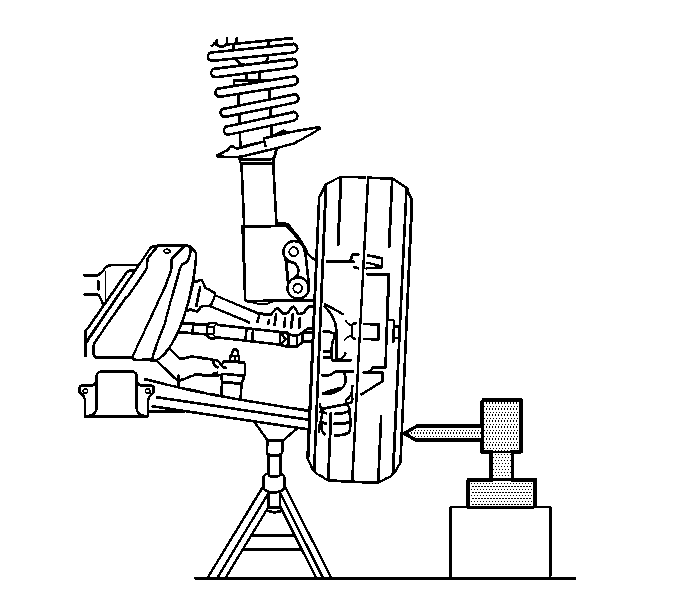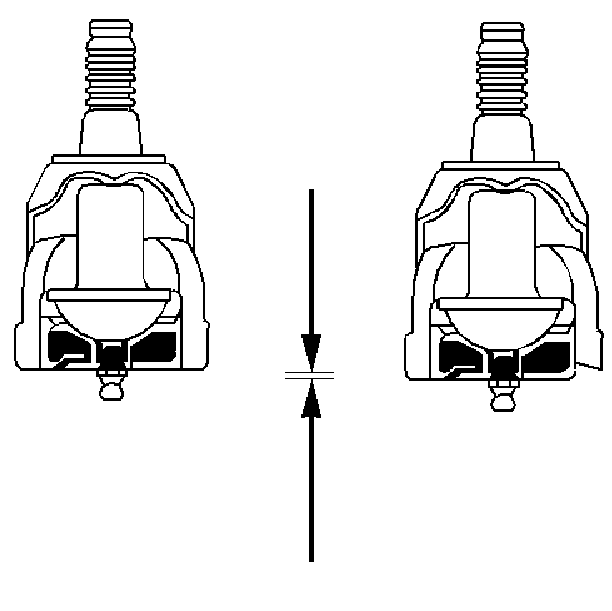Tools Required
J 8001 Dial Indicator

Important:
| • | The vehicle must rest on a level surface. |
| • | The vehicle must be stable. Do not rock the vehicle on the jack
stands. |
- Raise and support the vehicle with safety stands.
- Support the lower control arm with a jack stand, as far outboard
as possible, near the lower ball joint.
- Wipe the ball joint clean. Check the seals for cuts or tears.
Important: If a seal is cut or torn, replace the lower control arm.
- Check the wheel bearings for looseness. If looseness in the wheel bearings
is present, refer to
Wheel Bearings Diagnosis
.
- Check the ball joint for horizontal looseness.
| 5.1. | Position the J 8001
against the lowest outboard point on the wheel rim. |
| 5.2. | Rock the wheel in and out while reading the J 8001
. This shows horizontal looseness in the
lower ball joint. |
| 5.3. | The J 8001
reading
should be no more than 3.18 mm (0.125 in). If the reading is
too high, check the lower ball joint for vertical looseness. |

- Check the lower ball joint
for wear and for vertical looseness using the following procedure:
| 6.1. | Inspect by sight the lower ball joint for wear. The position of
the housing into which the grease fitting is threaded indicates wear. This
round housing projects 1.27 mm (0.050 in) beyond the
surface of the lower ball joint cover on a new ball joint. Under normal
wear, the surface of the lower ball joint housing retreats inward
very slowly. |
| 6.2. | First observe, then scrape a scale, a screwdriver, or a fingernail
across the cover. If the round housing is flush with or inside of the cover
surface, replace the lower control arm. Refer to
Lower Control Arm Replacement
in Front Suspension. |
| 6.3. | Pry between the lower control arm and the steering knuckle while
reading the J 8001
. This
shows vertical looseness in the ball joint. The lower ball joint is
not preloaded and may show some looseness. |


